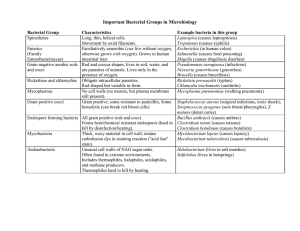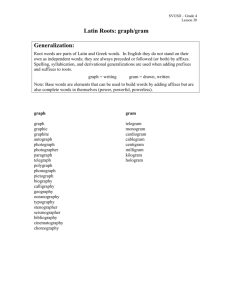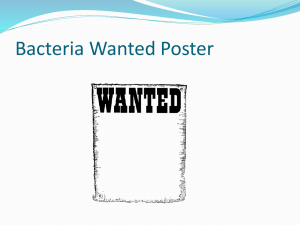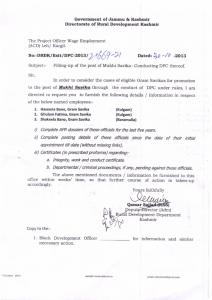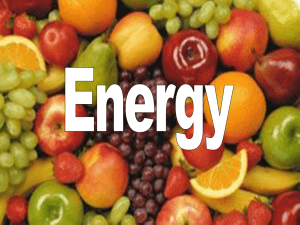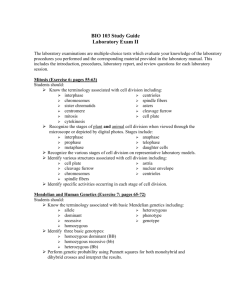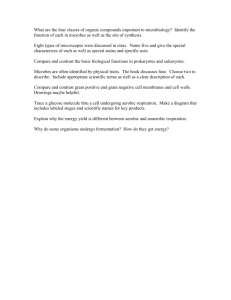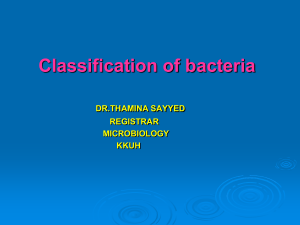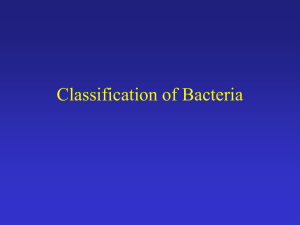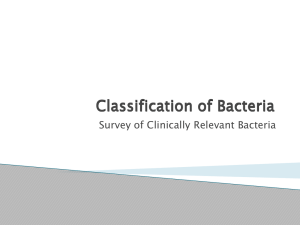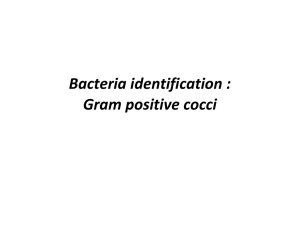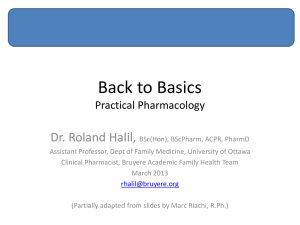Bacterial Identification
advertisement
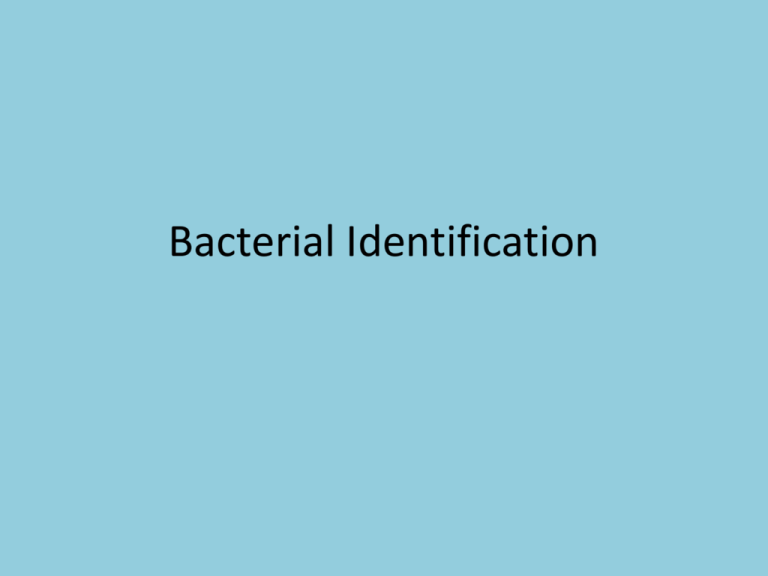
Bacterial Identification 1. E. Coli • Gram negative rods • Harmless but a few are pathogenic • Strains 0157:H7 causes food illnesses • Normal bacterial flora in lower intestines of warm blooded animals Sarcina aurantiaca • • • • Orange pigments Gram + Anaerobic Appears in cuboidal masses • Usually harmless • Found in air and water Bacillus subtilis • Gram + obligate aerobe • Tough endospores • Can contaminate food, but rare to cause illness • Enzymes used in laundry detergent • Natural fungicide Micrococcus roseus • Gram + • Skin: transforms compounds in sweat into compounds with an unpleasant odor • animal and dairy products, and beer. • water, dust, and soil. Bacillus megaterium • Gram + rods • Endospores • Found in soil/forms spores • Used to produce penicillin amidase Micrococcus luteus • Gram + cocci • Normal flora of upper RT and mouth • Mammal skin • Opportunistic pathogen Staphylococcus epidermis • Gram + diplococci • Catalase + • Opportunistic pathogen – Harbor around plastic medical equip: heart valves, catheters, IVs Streptomyces violaceus A model organism • Gram + rods • Produces violet pigments • New research: antibacteria and antiviral activities Serratia marcescens D1 • Gram – rods • Human pathogen of Respiratory and UT – UTI and catheter infections • Produces red pigment: prodigiosin • Found in restrooms; grows well in tile grout and shower curtains Streptococcus lacti YUM! • Gram + cocci in short chains • Production of buttermilk, cheese (brie, camembert, colby)
